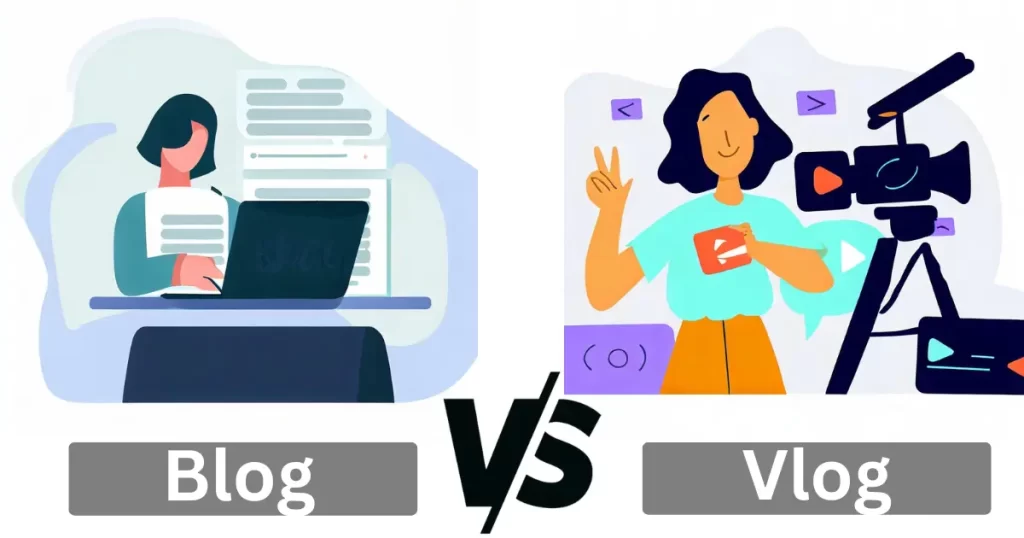Hello, dear bloggers!
If you’ve embarked on this post, we assume you have finally decided to make an additional income using blogging! Here, you’ll find all the stuff you are exploring. Creating a blog is difficult but not as simple as you think.
Let’s explore the essential considerations you need to acknowledge.
I. Choosing the Perfect Niche: Your Digital Playground
Okay, let’s start with the heartbeat of your blog—the speciality. Consider it the issue you’ll be researching, deconstructing, and presenting to your audience. I understand that selecting anything is tempting because it’s popular, but here’s the secret: go for something you’re enthusiastic about. Whether it’s food, technology, or underwater basket weaving, your words will show excitement.
But don’t give up—passion isn’t enough. Ensure an audience is eager for the material you want to deliver. A little market research never harms anyone; it helps you fine-tune your emphasis and avoid shouting into the digital wilderness. Your niche is more than a topic; it’s your digital playground, so make it something you’ll like exploring daily.
II. Picking the Right Platform: Your Blog’s Home Sweet Home
Now, let’s discuss about where your blog will reside. We have three key contenders: WordPress, Blogger, and Medium. Each has its appeal, so let’s break it down.
WordPress
This heavyweight champion is well-known for its customization. If you enjoy playing with design and want your blog to be completely distinctive, WordPress might be your favourite. With various plugins and themes, you may transform your digital area into precisely what you want.
Blogger
The friendly neighbour on the block, Blogger, is user-friendly and ideal for individuals who want a simple setup without technical jargon. It’s like a trustworthy buddy who is always available when you need them—simple and dependable.
Medium
If you value simplicity and community, Medium may be your digital refuge. It’s a place where your words may shine without interruption. Consider it a pleasant café where individuals may engage in essential talks.
III. Setting Up Your Blog: Three Ways to Make It Shine
Alright, now that you’ve determined your speciality and platform, it’s time to lay the groundwork for your digital performance. Here are three critical stages for setting up your blog:
Choose a Stellar Domain Name:
Your domain name is similar to your blog’s address, so make it memorable, representative of your topic, and simple to remember. It is your blog’s initial impression, so make it memorable and pertinent.
Customize Like a Pro:
Your blog’s design is your first impression, so make it count. Aim for a professional and user-friendly appearance—a welcome environment where your audience will want to stay. Consider your blog’s design to be a virtual showroom; make it welcoming and indicative of your business.
Craft a Killer About Page:
Introduce yourself! People are curious about the wizard behind the curtain. Share your experience, passions, and what readers may anticipate from your site. Your About page is more than simply a biography; it is an opportunity to interact with your readers on a human level.
IV. Creating Quality Content: The Blogging Chemistry
Now, let’s get to the actual magic: your material. Simply writing words is not enough; you must create pieces that capture your readers.
Here are three methods to make your content shine:
Know Your Audience:
Tailor your material to your intended audience. What would they want to read? What issues can you resolve for them? Understanding your audience is like having a hidden weapon for crafting engaging content.
Be consistent:
Make a timetable for your blog and follow it. Consistency develops trust with your readers and keeps them returning for more. Consider your publishing schedule a promise to your audience—a commitment to providing valuable information regularly.
Engage Your Readers:
Promote feedback, give it your attention, and foster a sense of belonging. Your blog will become more effective the more engaged your readership is. Creating a community involves more than just producing content; it also involves fostering interactions and dialogue.
V. Monetize Your Blog: Turn Passion into Profit
Now, let’s discuss business: how to transform your passion endeavour into a profitable enterprise. Here are the main methods to monetize your blog:
Ad Revenue:

Platforms like Google AdSense might let you make money while your following grows. Place advertisements strategically to improve the customer experience. Ad revenue is more than simply generating money; it balances profitability and user delight.
Affiliate Marketing:
Earn a commission on every transaction by promoting products pertinent to your expertise. It’s similar to giving a friend a cash incentive for suggesting a great book. Affiliate marketing is about recommending products you believe in, not just making revenue.
Sponsored Posts:
Collaborate with corporations on sponsored content. Make sure the products appeal to your target market and are pertinent to your speciality. Sponsored articles help you stay genuine and credible with your audience in addition to being a means of making money.
Sell Products and Services:
Consider selling your branded goods, e-books, or online courses if you are a professional. Selling goods is not just about generating money; it’s also about giving your audience something of value and proving to be an authority in the industry.
VI. Improving Your Blog’s Visibility: The SEO Magic
Let’s get technical: increasing your blog’s visibility through search engine optimization (SEO).
Here are three essential elements to remember:
Keyword Research:
Use Google Keyword Planner to uncover keywords that are related to your niche. Sprinkle them naturally across your article. Keyword research is more than simply ranking; it is about understanding your target audience’s language and wants.
Optimize Meta Tags:
Create intriguing meta-titles and descriptions. They are your blog’s calling card in search engine rankings. Meta tags are more than just enticing clicks; they provide a concise and engaging overview of your content.
Quality content is king, and Google values valuable material. Create informative, amusing, and in-depth content to keep readers on your page. Beyond merely satisfying search engines, creating quality content also means building reader trust and positioning your blog as a reliable information source.
VII. Tracking and Analyzing: Expressing the Numbers Game
While they might not be to everyone’s taste, numbers are your greatest allies when it comes to blogging. Here are some ways to track and evaluate the effectiveness of your blog:
Google Analytics:
Set it up to track traffic, user activity, and popular content. Understand what works and what may be improved. Google Analytics is more than just numbers; it’s about understanding your audience’s interests and activities.
Conversion Tracking:
If you offer things or services, use conversion monitoring to assess the efficacy of your monetization efforts. Conversion monitoring is more than purchases; it’s about knowing your audience’s journey and tailoring your services accordingly.
VIII. Blogging vs. Vlogging: Spot the Differences

Before we conclude, let us address the age-old subject of blogging vs. vlogging.
Blogging:
- It entails composing articles or posts.
- It is often text-based but may incorporate photos, videos, and other material. Blogging gives a diverse range of information that caters to different learning styles.
- Enables in-depth research of subjects. Blogging is like deep diving into an ocean of information, providing detailed insights into a topic.
- Appeals to readers who appreciate textual content. If you enjoy the written word, blogging is a literary wonderland.
Vlogging:
- This involves developing video material.
- Video is the primary format, but text and photos may also be used. Vlogging provides a dynamic and visual component to storytelling.
- Creates a more intimate and dynamic relationship with the audience. Vlogging lets viewers engage with the artist personally by watching and hearing them in action.
- Suitable for people who enjoy visual and audio material. If you’re fascinated by the power of pictures and music, vlogging is your cinematic getaway.
Your Blogging Odyssey Begins!
And there you have it: the definitive guide to beginning your blogging journey. Remember that it’s not only about simply providing content; it’s also about fostering a community, sharing your passion, and growing as a digital storyteller.
So, grab your keyboard and go on this beautiful journey; your blogs are ready to be published!





GIPHY App Key not set. Please check settings